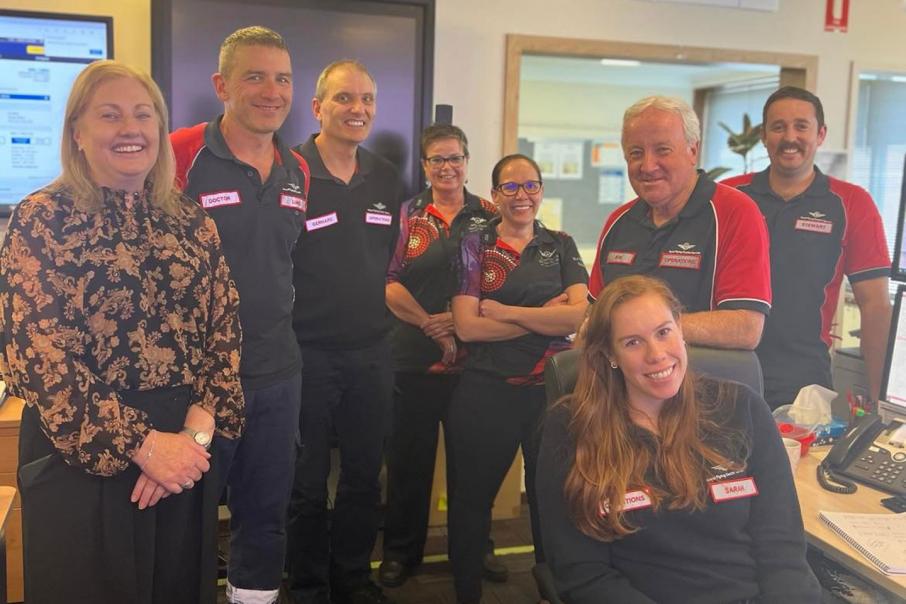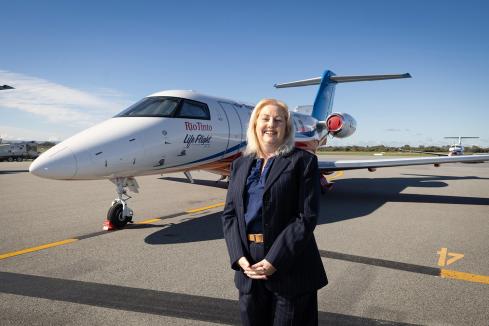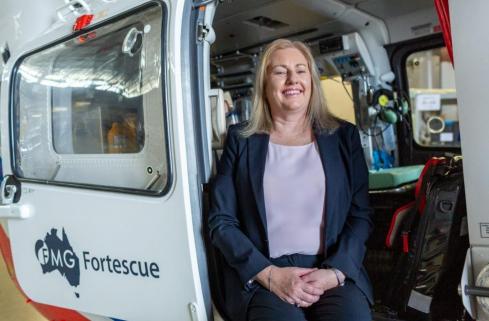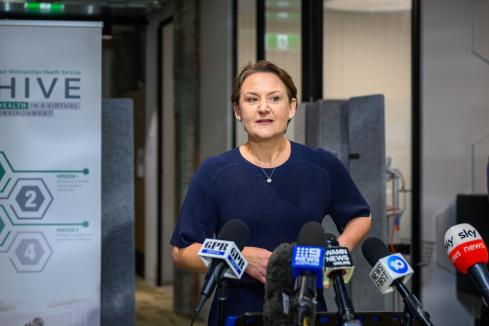

There are plenty of opportunities to shine as a female leader within Western Australia’ not-for-profit sector.
For some of these women, who we feature, the career trajectory offered by these unique organisations can take them to the very top of the tree.
Making their mark
RFDS WA chief executive Judith Barker had a ‘light bulb moment’ at set of traffic lights in Victoria Park after completing a degree in English.
“An ambulance drove past, and I thought ‘I can do that’,” Ms Barker said.
“I wanted to do something that was health and people-focused and decided being a paramedic would be the perfect fit for me.”
Fast-forward to January 2023, and Ms Barker, who was recently appointed as chief executive, is one of the recipients of the Ambulance Service Medal as part of the Australia Day 2023 Honours List.
She was recognised for her leadership of St John NT (Northern Territory) during the pandemic and for her oversight of the organisation's response to operating under global pandemic conditions.
These awards are a significant honour, which recognise commitment to service and the community.
Ms Barker's operational experience was invaluable during the most intense periods of the pandemic when she provided leadership and direction as Incident Controller for the St John NT Incident Management Team for over two years. The team remained operational seven days a week.

CEO Judith Barker inside the RFDS PC-12 turboprop aircraft_medicalinterior
Ms Barker’s motivation in the role is driven by a recognition that, having worked alongside the RFDS for her whole career, she knows how important the organisation is for Western Australia – and the rest of the country too.
“I’d like people to know that we’re there for them on their worst days,” Ms Barker said.
“But while we’re there for tragic accidents and health emergencies, many people don’t realise we also run primary health clinics that provide critical support for people living in remote communities.
“Our amazing RFDS nurses and doctors go out to stations and remote places and visit Aboriginal communities to conduct clinics and primary healthcare in areas such as women’s health, dentistry, mental health or GP services.”
Above all, she always remembered who they were there for – the people of WA, she said.
Empathy and transparency are key
Mosaic Community Care is not-for-profit group that provides disability support services, giving people aged 18-plus across Perth – and their families – more choices, control and independence.
Mosaic chief executive Pippa Cebis, a secondary school teacher who taught at an international school in Hong Kong before returning to Australia in 1999, was initially drawn to the aged care sector.
“It was a way for me to make a difference in people’s lives in a for-profit organisation at the time, and I experienced working with a completely different age group to what I had been used to, before moving to a disability NFP,” Ms Cebis said.
The skillset she developed was very much rooted in empathy and transparency.
“I believe you can run a fiscally strong, compliant NFP and still be authentic and empathetic,” she said.
“It’s really important too that the workplace is inclusive in all sorts of ways; diversity means lots of different things and, in our case, you will be supported no matter who you are.”
Ms Cebis joined Mosaic six years ago and has witnessed rapid change in the disability sector.
“That means we have had to manage that change and have witnessed great strides in how people with disabilities are now recognised and acknowledged,” she said.
“With those strides, however, has come more stringent compliance requirements, and then there was COVID to navigate.
“As such, our sector has been in a constant state of uncertainty and change for several years.”
What Ms Cebis brings to the mix is not only a culture of kindness but also a set of core values, empathy and excellence in Mosaic’s service delivery.
“We need to be agile and adaptive,” she said.
“Being in a state of flux is the norm these days and leaders need to be mindful that there’s a need to run a robust, viable organisation while working hand-in-hand with being empathetic as people do it tough.”
Tough times breed strong leaders
The continual struggle for funding at RSPCA WA was a surprise to inspector manager Kylie Green, who leads a team of 15 inspectors.

Kylie Green, RSPCA WA inspector manager
“It’s such a well-known, respected brand that many people think we are government funded,” Ms Green said.
“The reality is though that we have to raise around 80 per cent of our $12 million annual operating costs through donations, sponsorships and the like.
“In a leadership role where your decisions can mean life or death for animals, you’re always striving to do things better despite challenging financial situations.
“Charities can be rife with compassion fatigue, and I’ve found creating a safe space for my team to share their ideas and concerns is paramount.”
Ms Green works hard to maintain a good work-life balance, especially when her job can leave her emotionally and mentally affected by some of the situations she must manage.
“The job can be incredibly unpredictable and will easily creep into your personal time if you let it,” she said.
“I’m a leader for my team in drawing clear boundaries to give them time for themselves.
“We have to care for each other so we can continue to care for animals.
“My advice to other women keen to work in the not-for-profit space would be to follow your passion.”















